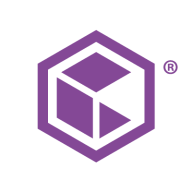

Commvault Cloud and AWS Backup are competitors in the data protection and backup market. Commvault Cloud appears to have an advantage with its extensive feature set and support for both on-premises and cloud environments, while AWS Backup is more appreciated for its seamless integration and ease of use with AWS services but lacks advanced functionalities.
Features: Commvault Cloud is known for its global deduplication, flexible data flows, and its ability to manage on-premises and cloud environments under one solution. It supports a wide range of platforms and applications, making it versatile for various business needs. AWS Backup is valued for its simple integration and operation within AWS, providing basic backup services efficiently and effectively in AWS environments.
Room for Improvement: Commvault Cloud's complexity may hinder user experience, with improvements needed in its interface and cloud integration features. It also requires better documentation and significant resources for implementation. AWS Backup could enhance its advanced functionality offerings, such as comprehensive database backups, and improve support for hybrid cloud environments to increase its versatility.
Ease of Deployment and Customer Service: Commvault Cloud provides deployment flexibility across on-premises, private, and public clouds, catering to users with multi-cloud needs. It is supported by a strong network but could benefit from improved localization. AWS Backup is noted for seamless deployment within AWS, although it lacks on-premises and hybrid cloud capabilities. Both solutions receive positive feedback for responsive customer support, with AWS Backup highly regarded for quick service in cloud environments.
Pricing and ROI: Commvault Cloud is seen as a premium option with a higher upfront cost but offers long-term savings via efficient resource management and reduced complexity, with flexible pricing models tailored to business needs. AWS Backup offers predictable, transparent, pay-as-you-go pricing, which is appealing to SMEs. However, it may lack comprehensive cost-saving features found in Commvault, limiting its attraction for data-intensive environments.
| Product | Market Share (%) |
|---|---|
| Commvault Cloud | 6.1% |
| AWS Backup | 2.7% |
| Other | 91.2% |


| Company Size | Count |
|---|---|
| Small Business | 10 |
| Midsize Enterprise | 5 |
| Large Enterprise | 15 |
| Company Size | Count |
|---|---|
| Small Business | 57 |
| Midsize Enterprise | 24 |
| Large Enterprise | 82 |
AWS Backup is a fully managed backup service that makes it easy to centralize and automate the backup of data across AWS services. With AWS Backup, you can create backup policies, define backup schedules, and manage backups across multiple AWS accounts and regions from a single console. It supports a wide range of AWS services, including Amazon EBS volumes, Amazon RDS databases, Amazon DynamoDB tables, Amazon EFS file systems, and more.
AWS Backup provides a simple and cost-effective solution for protecting your data and ensuring business continuity. It offers features like cross-region replication, incremental backups, and point-in-time recovery. With AWS Backup, you can easily restore your data to any point in time and recover from accidental deletions or data corruption.
It also provides a centralized view of your backup activity, allowing you to monitor and manage backups across your entire AWS infrastructure. AWS Backup is designed to be highly durable and secure, with data encrypted at rest and in transit. It integrates with AWS Identity and Access Management (IAM) for fine-grained access control and supports compliance with various industry standards and regulations.
Commvault Cloud is the ultimate cyber resilience platform built to meet the demands of the hybrid
enterprise. Beyond its core functionality of data backup and recovery across diverse workloads, including applications, databases, virtual machines, and files, Commvault Cloud stands out as a robust defense against ransomware. Going beyond backup, the platform integrates advanced data security features such as encryption, access control, and threat detection, safeguarding against unauthorized access and cyber threats.
With tools for data management, classification, and migration, businesses can optimize storage costs, enhance accessibility, and comply with regulations seamlessly. Boasting cloud integration with major providers like AWS, Azure, and Google Cloud, Commvault Cloud leverages the scalability and flexibility of the cloud for comprehensive data protection and management. The platform's automation capabilities streamline tasks, and its reporting and analytics features provide valuable insights into data usage, potential risks, and optimization strategies. Commvault Cloud is not just a security tool; it is a key component of cyber resilience, enabling organizations to not only protect against cyberattacks but also recover swiftly and minimize the impact of incidents. Elevate your cyber resilience strategy with Commvault Cloud.
We monitor all Cloud Backup reviews to prevent fraudulent reviews and keep review quality high. We do not post reviews by company employees or direct competitors. We validate each review for authenticity via cross-reference with LinkedIn, and personal follow-up with the reviewer when necessary.